Mr. Wilkie Collins brings to his work, along with other and valuable qualities, the special talent of the private detective and the criminal lawyer. Almost no modern novelist stands in any comparison with him for skill in constructing the engrenage, as a Frenchman would call it, of personal complication, for subtle delicacy in fitting together wheel and spring, pivot and pinion of his dramatic clockwork, in such fascinating interplay as shall lead the attention of the breathless spectator smoothly, imperceptibly, but inevitably to the final wind-up of the catastrophe. This skill in combining events is supplemented by, or rather cognate with, his shrewd analysis of character and motive. It is his favorite plan to suppose a case of private relation where virtuous personages or important interests are threatened by the schemes of some clever villain. Against him Mr. Collins, in the person of his beneficent and equally clever hero or heroine, straight sets his wits to defend the interests or persons attacked. The resulting struggle is carried on with the most exquisite skill of fence, involving both practical device and metaphysical penetration and shrewdness, till the final triumph of the right and confusion of the wrong-doers. In this book the metaphysical element assumes unusual importance. The book is in so far an exception to the usual run of Mr. Collins's works, that it is less a leaf from the records of Scotland Yard than an extract from the diary of a psychologist. There is a villain and a protecting genius, as usual ; but the villain is only a half one after all, and we are less interested in the actual facts of his rascality than in the causes which lead him to it, and the temperament which renders it possible. In the leading character, poor Miss Finch herself, the author develops an interesting question of medical psychology. A young girl, blind almost from her birth, loves one of two twin brothers, who has, in the process of medical treatment for epilepsy, been terribly disfigured in complexion by the use of nitrate of silver. From Lucilla's instinctive horror of dark objects, the injudicious and timid concealment by the lover of his dusky hue, and the treacherous advantage taken of these things by the other twin, Nugent, to supplant his brother — the whole complicated by Lucilla's temporary restoration to sight and subsequent relapse — arises the whole intrigue of the story …

200 Meisterwerke der Literaturgeschichte : Die größten Klassiker der Weltliteratur
Franz Kafka, Victor Hugo, Fjodor Michailowitsch Dostojewski, Lord Byron, Giacomo Leopardi, Marcel Proust, Henrik Ibsen, Percy Bysshe Shelley, Charles Dickens, Jane Austen, Mary Shelley, Emily Brontë, Charlotte Brontë, Anne Brontë, William Makepeace Thackeray, Bram Stoker, Henry Fielding, George Eliot, William Shakespeare, D. H. Lawrence, Walt Whitman, Herman Melville, Thomas Wolfe, Virginia Woolf, Joseph Conrad, Sinclair Lewis, Lewis Carrol, Edgar Allan Poe, Edward Bulwer-Lytton, Oscar Wilde, H. G. Wells, Daniel Defoe, James Fenimore Cooper, Lew Wallace, Jonathan Swift, Robert Louis Stevenson, Mark Twain, Walter Scott, Nathaniel Hawthorne, Harriet Beecher Stowe, Laurence Sterne, Frances Hodgson Burnett, Arthur Conan Doyle, Wilkie Collins, Edgar Wallace, Jack London, Henry David Thoreau, John Galsworthy, F. Scott Fitzgerald, Rudyard Kipling, G. K. Chesterton, Washington Irvin, O. Henry, Ambrose Bierce, Alexander Sergejewitsch Puschkin, Michail Lermontow, Iwan Sergejewitsch Turgenew, Leo Tolstoi, Nikolai Gogol, Iwan Gontscharow, Nikolai Leskow, Anton Pawlowitsch Tschechow, Maxim Gorki, François Rabelais, Jean de la Fontaine, Blaise Pascal, Pierre Corneille, Moliere, Jean Baptiste Racine, Charles Perrault, Voltaire, Denis Diderot, Jean Jacques Rousseau, Pierre Ambroise Choderlos de Laclos, Antoine-François Prévost, Marquis de Sade, François René Chateaubriand, Stendhal, Honoré de Balzac, Alexandre Dumas, Alphonse de Lamartine, George Sand, Gustave Flaubert, Emile Zola, Guy de Maupassant, Alphonse Daudet, Jules Verne, Joris-Karl Huysmans, Prosper Mérimée, Charles Baudelaire, Stéphane Mallarmé, Arthur Rimbaud, André Gide, Arthur Schopenhauer, Heinrich Heine, Friedrich Schiller, Johann Wolfgang von Goethe, Jacob Grimm, Gottfried von Straßburg, Wolfram von Eschenbach, E. T. A. Hoffmann, Annette von Droste-Hülshoff, Heinrich von Kleist, Friedrich Hölderlin, Theodor Fontane, Gustav Freytag, Gottfried Keller, Theodor Storm, Stefan Zweig, Joseph von Eichendorff, Klaus Mann, Rainer Maria Rilke, Johanna Spyri, Joseph Roth, Karl May, Robert Musil, Heinrich Mann, Sigmund Freud, Friedrich Nietzsche, Dante Alighieri, Giovanni Boccaccio, Giacomo Casanova, Luigi Pirandello, Giosuè Carducci, Gabriele D'Annunzio, Niccolo Machiavelli, Miguel Cervantes de Saavedra, Pedro Calderón de la Barca, Vicente Blasco Ibañez, Knut Hamsun, Homer, Äsop, Herodot, Thukydides, Xenophon, Platon, Aristoteles, Sophokles, Euripides, Aristophanes, Laotse, Konfuzius, Siddhartha Gautama Buddha, Titus Livius, Tacitus, Marcus Tullius Cicero, Vergil, Ovid, Lukian, Petronius, Apuleius, Longos von Lesbos, Mark Aurel, Aurelius Augustinus
book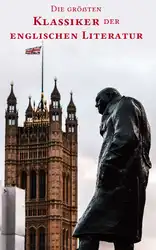
Die größten Klassiker der englischen Literatur (Band 1: Romane) : 50+ Titel in einem Buch
Virginia Woolf, D. H. Lawrence, R. L. Stevenson, Jane Austen, Charles Dickens, Emily Brontë, Mary Shelley, Charlotte Brontë, Anne Brontë, William Makepeace Thackeray, Bram Stoker, Henry Fielding, George Eliot, Herman Melville, Thomas Wolfe, Joseph Conrad, Sinclair Lewis, Lewis Carrol, Edgar Allan Poe, Edward Bulwer-Lytton, Oscar Wilde, H. G. Wells, Daniel Defoe, James Fenimore Cooper, Lew Wallace, Jonathan Swift, Mark Twain, Walter Scott, Nathaniel Hawthorne, Harriet Beecher Stowe, Laurence Sterne, Frances Hodgson Burnett, Arthur Conan Doyle, Wilkie Collins, Edgar Wallace, Jack London, John Galsworthy, F. Scott Fitzgerald
book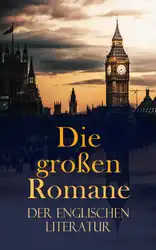
Die großen Romane der englischen Literatur : 50 Klassiker in einem Band
Charles Dickens, Mary Shelley, Jack London, Arthur Conan Doyle, Jane Austen, Emily Brontë, Charlotte Brontë, Anne Brontë, William Makepeace Thackeray, Bram Stoker, Henry Fielding, George Eliot, D. H. Lawrence, Herman Melville, Thomas Wolfe, Virginia Woolf, Joseph Conrad, Sinclair Lewis, Lewis Carrol, Edgar Allan Poe, Edward Bulwer-Lytton, Oscar Wilde, H. G. Wells, Daniel Defoe, James Fenimore Cooper, Lew Wallace, Jonathan Swift, Robert Louis Stevenson, Mark Twain, Walter Scott, Nathaniel Hawthorne, Harriet Beecher Stowe, Laurence Sterne, Frances Hodgson Burnett, Wilkie Collins, Edgar Wallace, John Galsworthy, F. Scott Fitzgerald
book
100 classic detectives. Golden Age of Detective Fiction. Illustrated : The Gold-Bug, The Adventures of Sherlock Holmes, The Innocence of Father Brown, Crime and Punishment and others
Wilkie Collins, Edgar Allan Poe, Charles Dickens, Arthur Conan Doyle, G. K. Chesterton, Emile Gaboriau, E. W. Hornung, M. McDonnell Bodkin, Guy Boothby, Jacques Futrelle, Melville Davisson Post, Ethel Lina White, Emmuska Orczy, Edgar Wallace, Algernon Blackwood, Maurice Leblanc, Gaston Leroux, Anna Katherine Green, Fergus Hume, Fyodor Dostoevsky, Robert Louis Stevenson, Dorothy L. Sayers, R. Austin Freeman
book
Die Traumfrau
Wilkie Collins
audiobook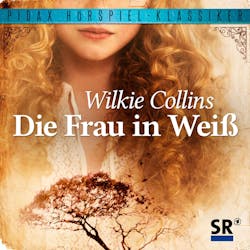
Die Frau in Weiß
Wilkie Collins
audiobookbook
Die Frau in weiss
Wilkie Collins
audiobook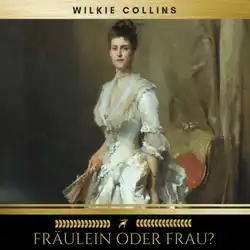
Fräulein oder Frau?
Wilkie Collins, Golden Deer Classics
audiobook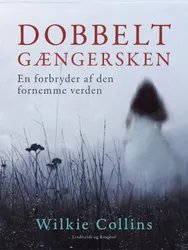
Dobbeltgængersken. En forbryder af den fornemme verden
Wilkie Collins
book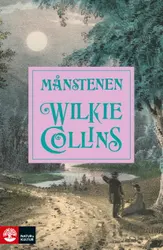
Månstenen
Wilkie Collins
book
Die Kasse von Herr Wray : Weihnachtskrimi
Wilkie Collins
book
No Thoroughfare :
Charles Dickens, Wilkie Collins
audiobook
